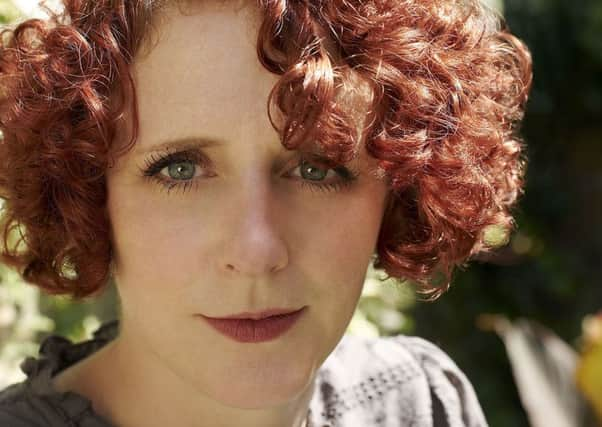Book review: This Must Be The Place by Maggie O'Farrell


This Must Be The Place by Maggie O’Farrell | Tinder Press, £18.99
On finishing Maggie O’Farrell’s exquisite seventh novel, I immediately re-read the opening chapter. It is a miniature masterclass of plotting. Narrated by Daniel Sullivan, a New Yorker and academic specialising in linguistics, living in rural Donegal with his rather eccentric wife, Claudette, and their children, it deftly sets up narrative eddies that will swirl and churn through the novel.
Advertisement
Hide AdWe learn that Daniel is divorced and rarely sees his children from his first marriage in America. He is due to return there for his father’s 90th birthday, an event approached with some foreboding – not, as his sisters claim because of his “much-vaunted anticipated death” but because in Daniel’s opinion “the man never had a pulse in the first place”. Hearing a woman’s voice on the radio triggers a carefully suppressed memory; seeing a child with eczema causes another twinge of conscience. Claudette, it transpires, was once an actress and is now furiously defensive of her privacy.
All of these details will be of key importance in the story, but not perhaps in the way one is led to expect. Even more impressive is what might be called the moral misdirection O’Farrell accomplishes. Daniel’s voice is engaging, wry, kindly – and yet it ends with him thinking of his “thudding, tripping, treacherous heart”. He is “riddled with holes and caverns, like a limestone landscape”. In an image which perfectly encapsulates O’Farrell’s own method, Daniel thinks about join-the-dots puzzles, and finds “that same feeling of dislocation between what you thought you were doing and what you actually did”.
As in previous novels, O’Farrell uses a beguiling kaleidoscopic technique, shifting both perspective and chronology. From 2010 in Ireland and Daniel we ricochet to Claudette in London in the early nineties, and a move to an aloof first person plural voice. Subsequent chapters move between the present day and 1944, between Brooklyn, the Scottish Borders, Bolivia and Sweden. Chapters are naively footnoted, or constructed as auction catalogues, or are transcripts of interviews, or are almost independent short stories in their own right.
Formally, this presents the reader with a series of delightful conundrums. Are the flashbacks providing us with the psychological and narrative causes for later events and effects? Or are they themselves determined by earlier decisions and choices? Similarly, the introduction of other narrators allows us to see the principal characters askance. It sets up the irony that pervades the entire book, the gulf between how characters think of themselves and how they are perceived by others. Despite Daniel’s professional interest in precisely observing how language changes and mutates, he is singularly obtuse at reading between the lines. Miscommunications, misinterpretations, letters unsent or misdelivered recur again and again.
This tone binds the otherwise diverse materials. It is also thematically unified. With her customary concentration on the nature of parenthood and the family, O’Farrell explores filigree networks of interconnection. This Must Be The Place is full of half-siblings and step-children, adoptions and abortions, the unplanned and the eternally hoped-for. The opening chapter cleverly suggests that the centre of the book will be the Oedipal antagonism between Daniel and his father. It is and isn’t; but it chimes with the evasive nature of fatherhood here. O’Farrell signs off with an epigraph from Louis MacNeice’s poem Snow – “World is crazier and more of it than we think / Incorrigibly plural” and the narrative is indeed plural – but it could have easily been the line from James Joyce’s Ulysses, “Paternity may be a legal fiction. Who is the father of any son that any son should love him or he any son?”
There are moments of terrible grief and debilitating melancholy in this novel; there are also tentative forgivings and hard-won self-knowledges. There are also very skilfully deployed moments of comedy, albeit with an undertow of pathos. O’Farrell is tremendously sure-footed at wrong-footing the reader. At one point, a film director is being questioned about his move into the more commercial form of television. “It can be too prescriptive, too formulaic… I prefer to work with a looser structure, you know, an unexpected outcome”.
Advertisement
Hide AdThis pretty much summarises O’Farrell’s own work. Although marketed as “commercial” or “mid-list”, she manages to smuggle in a great deal of experimentation and risk. Moreover, her approach to characterisation is far more complex and nuanced than in some contemporary fiction: the characters are, to return to the MacNeice quote, incorrigibly plural. On first meeting Claudette and not being able to place her, Daniel thinks, “I suddenly remembered where I’d seen her before. She had been a dancer. Or was it a doctor? I’d seen her as an amputee, a murderess, a detective, a nanny. I’d watched her be French, Spanish, Italian, Persian. She’d escaped death and she’d died of cancer”. It’s not just the actress in This Must Be The Place who contains multitudes.
This exceptionally accomplished and emotionally sophisticated novel poses a profound question: is there anything more damaged and damaging than someone who is convinced they are a good person?